| | | OFFLINE | | Post: 20.447
Post: 3.085 | Registrato il: 28/08/2005
Registrato il: 20/01/2009 | Administratore | Utente Master | |
|


 I didn't get to translate the Holy Father's catechesis till just now, so I'm re-posting it on this page as well, with the news agency photos of the GA:
GENERAL AUDIENCE ON 6/23:
I didn't get to translate the Holy Father's catechesis till just now, so I'm re-posting it on this page as well, with the news agency photos of the GA:
GENERAL AUDIENCE ON 6/23:
Final Catechesis on St. Thomas Aquinas
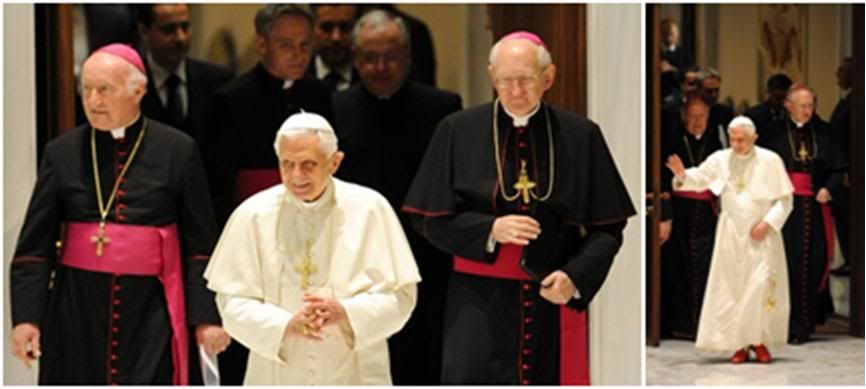
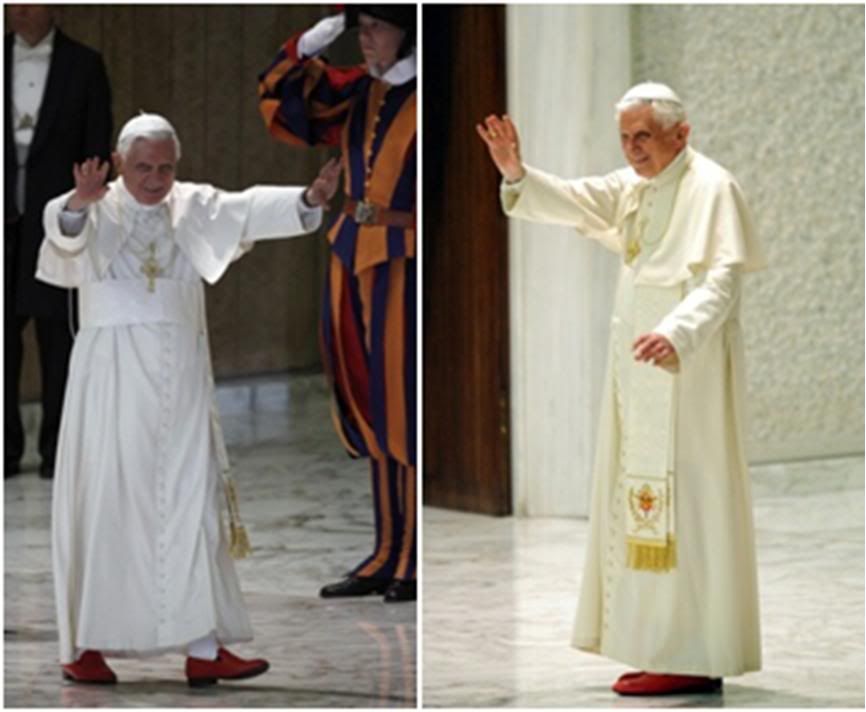
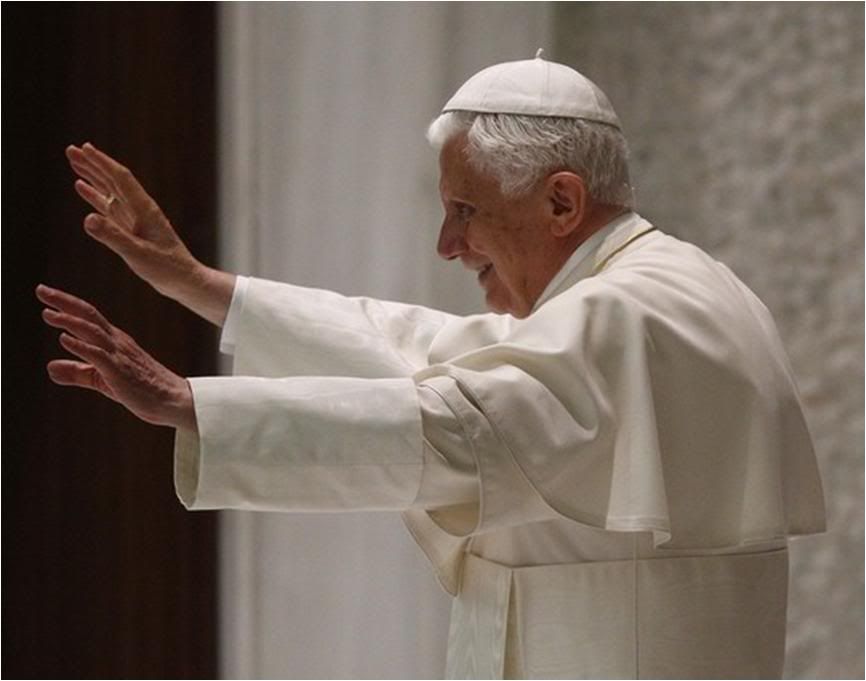
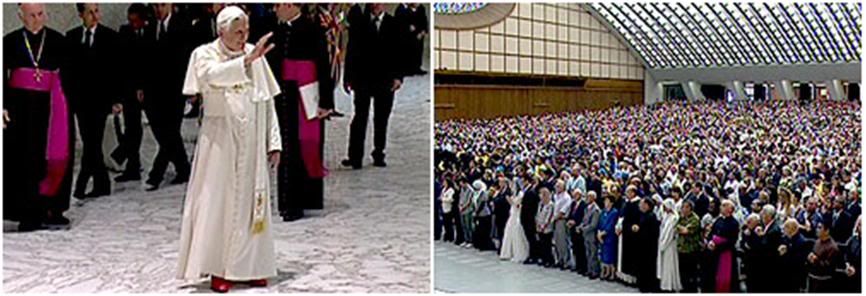
Here is a full translation of the Pope's catechesis:
Dear brothers and sisters,
Today I wish to complete, with a third installment, my catecheses on St. Thomas Aquinas. Even more than 700 years after his death, we can learn a lot from him. This was recalled by my predecessor Paul VI who siad, in an address in Fossanova in September 1974, on the seventh centenary of Thomas's death, asked, "Master Thomas, what lesson can you give us?"
His answer: "Confidence in the truth of Catholic religious thought, such as hedefended, explained and opened to the cognitive capacity of the human mind" (Teacnings of Paul VI, XII, 1974, pp 833-834).
On the same day, in Aquino, still referrring to St. Thomas, he said: "All of us, insofar as we are faithful children of the Church, can and should, at least in some measure, be his disciples" (idbid., p. 834).
Let us therefore place ourselves in the school of St. Thomas and his masterwork, the Summa Theologiae. It was unfinished but nonetheless, it is a monumental work, containing 512 questions and 2,669 articles.
Tightly argued, human reason is applied to the mysteries of the faith with clarity and depth, in questions and answers, whereby St. Thomas deepens the teaching that comes from Sacred Scripture and the Fathers of the Church, above all from St. Augustine.
In these reflections about the true questions of his time - which are often our own questions - St. Thomas, using the method and thinking of ancient philosophers, especially Aristotle, arrives at precise, lucid and pertinent formulations of the truths of the faith, where truth is a gift of faith, it shines and becomes accessible to us, for our own reflection.
But this effort of the human mind - As Aquinas reminds us with his own life - is always illuminated by prayer, by the light that comes from above. Only he who lives with God and his mysteries can understand what they say.
In his 'summary of theology', St. Thomas starts from the fact that God exists in three different ways:
First, he exists in himself - he is the principle and end of all things, and all creatures proceed from him and depend on him.
Then, God is present through his Grace in the life and activities of the Christian, of the saints.
And finally, God is present in a very special way in the Person of Christ truly united with the man Jesus, and working through the sacraments that flow from his redemptive work.
That is why the structure of this monumental work (cfr. Jean-Pierre Torrell, La «Summa» di San Tommaso, Milano 2003, pp. 29-75) - a quest with a 'theological outlook' into the fulness of God (cfr. Summa Theologiae, Ia, q. 1, a. 7) - is articulated in three parts illustrated by the Doctor Communis himself with these words:
"The main purpose of sacred doctrine is to make God known, not only in himself, but insofar as he is the beginning and the end of all things, especially of the creature with reason. In exposing this doctrine, we shall first discuss God; then, the movement of his creatures towards God; and thirdly, Christ who, as a man, is our way to ascend to God" (Ibid., I, q. 2).
It is circular: God in himself, who goes out of himself and takes us by the hand, so that with Christ, we return to God, we are united with God, and God will be everything in everyone.
Thus the first part of Summa Theologiae is an inquiry on God in himself, on the mystery of the Trinity, and on God's creative activity.
We also find a profound reflection on the authentic reality of the human being insofar as he comes from the creative hands of God, fruit of his love. On the one hand, we are created, dependent beings - we do not come from ourselves. But on the other hand, we have true autonomy, in that we are not simply something apparent - as some Platonist philosophers maintain - but a reality willed by God as such, with value in ourselves.
In the second part, St. Thomas considers man, impelled by Grace, in his aspiration to know and love God in order to be happy in time and in eternity.
First of all, the author presents the theological principles of moral action, studying how, in man's free choice to do good things, reason, will and passions are integrated - to which are added the strength that God's grace gives through the virtues and gifts of the Holy Spirit, as well as with the help of moral law.
Thus, the human person is a dynamic being that seeks itself, that seeks to become itself, and seeks, in this sense, to do things that build it up, that make it truly human. And here, moral law comes in, with Grace and reason, will and passions.
On this basis, St. Thomas delineates the physiognomy of the man who lives according to the Spirit and who thus becomes an icon of God. Here, St. Thomas pauses to study the three theological virtues - faith, hope and charity - followed by an acute examination of more than 50 moral virtues organized around four cardinal virtues - prudence, justice, temperance and firmness. He ends with a reflection on the different vocations in the Church.
In the third part of the Summa, St. Thomas studies the Mystery of Christ - the Way and the Truth - through whom we can reach God the Father. In this section he writes pages that are near-unsurpassable on the Mystery of the Incarnation and the Passion of Jesus, adding an ample treatise on the seven Sacraments, by which the divine Word incarnate extends the benefits of the Incarnation for our salvation, for our journey of faith towards God and eternal life - it remains almost materially present in the realities of Creation, and thus touches us intimately.
Speaking of the Sacraments, St. Thomas dwells particularly on the Mystery of the Eucharist, for which he had a very great devotion, to the point that according to his earliest biographers, he used to lay his head on the Tabernacle, as though to hear the beating of the divine and human heart of Jesus.
In one of his works of commentary on Scripture, St.Thomas helps us to understand the excellence of the Sacrament of the Eucharist when he writes: "Since the Eucharist is the sacrament of the Passion of our Lord, it contains in itself Jesus Christ who suffered for us. Therefore all that which is the effect of the Passion of our Lord is also the effect of this sacrament, since it is no other than the application in us of the Passion of Christ" (In Ioannem, c.6, lect. 6, n. 963).
We can understand why St. Thomas and other saints have celebrated the Holy Mass shedding tears of compassion for the Lord who offers himself as a sacrifice for us, tears of joy and gratitude.
Dear brothers and sisters, in the school of the samints, let us be enamored of this Sacrament. Let us take part in Holy Mass in the spirit of contemplation, in order to obtain its spiritual fruits. Let us nourish ourselves with the Body and Blood of the Lord, so we may be incessantly fed by Divine Grace. Let us gladly and frequently devote ourselves, one on one, in the company of the Most Blessed Sacrament.
What St. Thomas illustrated with scientific rigor in his major theological works, as the Summa theologiae itself, he exposed the Summa contra Gentiles in his preaching, addressed to his students and to the faithful.
In 1273, one year before his death, during the entire Lent, he preached at the Church of San Domenico Maggiore in Naples. The contents of those sermons were assembled and conserved - these are the booklets in which he explains the symbol of the apostles, he interprets the 'Our Father', he illustrtes the Decalog (Ten Commandments) and comments on the 'Hail Mary'.
The contents of the preaching of the DoctorAngelicus corresponds almost completely to the structure of the Catechism of the Catholic Church. In fact, in catecheses and preaching, at a time like ours of a renewed commitment to evangelization, these fundamental arguments must never be missing: what we believe - that is the Symbol of the faith [an expression that refers to the Creed]; what we pray - the Our Father and the Hail Mary; what we live, as Biblical revelation teaches us - namely, the law to love God and our neigbor, and the Ten Commandments as an application of the commandment of love.
I wish to cite some examples of the simple, essential and persuavice content of St. Thomas's teaching. In his booklet on the Symbol of the Apostles, he explains the value of faith. Through faith, he says, the soul unites itself to God and produces something akin to a seed of eternal life; we receive a sure orientation for life, and we can easily overcome temptation.
To those who object that faith is foolish, because it asks us to believe in something which does not fall within sensory experience, St. Thomas offers a very detailed answer, recalling that this is an inconsistent doubt, because human intelligence is limited and cannot know everything. Only when we can perfectly know all things visible and invisible would it be true foolishness to accept the truths of pure faith.
Moreover, he says, it is impossible to live without trusting in the experience of others in matters which our personal knowledge cannot reach. Therefore it is reasonable to have faith in God who reveals himself, and in the testimony of the Apostles: they were a few, simple and poor people who were terrified because their master had been crucified - and yet, so many people who were wise, noble and rich were converted within a short time because of their preaching.
It was thus a historically miraculous phenomenon, to which one can give no reasonable explanation other than the encounter of the Apostles with the Resurrected Lord.
Commenting on the Symbol of the Incarnation of the divine Word, St. Thomas makes the following considerations: He affirms that Christian faith is reinforced with the mystery of the Incarnation. Hope becomes more confident with the thought that the Son of God has come among us, as one of us, to communicate his own divinity to men. Charity is revived because there can be no more evident sign of God's love for us than to see the Creator of the universe become a creature himself, one of us.
Finally, considering the mystery of the Incarnation of God, we feel inflamed within us the desire to reach Christ in his glory. Using a simple and efficient metaphor, St. Thomas observes: "If the brother of a king lived far, he would certainly want to live near him. Well, Christ is a brother to us: we must therefore desire his company, to become one heart with him" (Opuscoli teologico-spirituali, Roma 1976, p. 64).
Presenting thr Lord's Prayer, St. Thomas shows that it is perfect in itself, having all the five characteristics that a well-said prayer should have: trustful and serene abandon; convenience in its content [because, St. Thomas notes, "it is difficult enough to know exactly what is right to ask for and what not, since it is difficult to choose from our desires" (Ibid., p. 12)]; an order that is appropriate to the request; the fervor of charity; and the sincerity of humility.
St. Thomas was, like all the saints, a great devotee of Our Lady. He defined her with a stupendous title: Triclinium totius Trinitatis, - a place where the Trinty finds repose, because with the Incarnation, in no other creature but her, the three divine Persons dwelt and found delight and joy in inhabiting a soul full of Grace. Through her intercession, we can obtain every assistance.
With a prayer that has been traditionally attributed to St. Thomas, and which, in any case, reflects the elements of his profound Marian devotion, let us say with him: "Most Blessed and sweetest Virgin Mary, Mother of God... I entrust my whole life to your merciful heart... Obtain for me, my sweetest Lady, true charity with which I can love your Most Blessed Son with all my heart, and you after him, above all things, and my neighbor in God and for God".
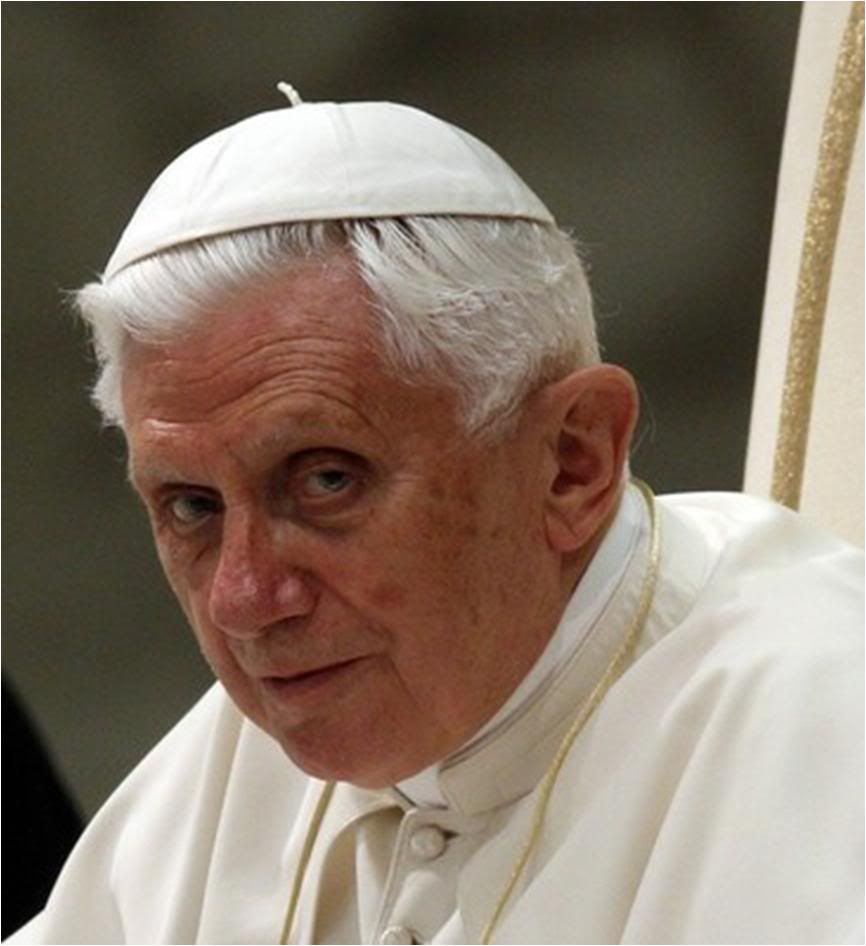
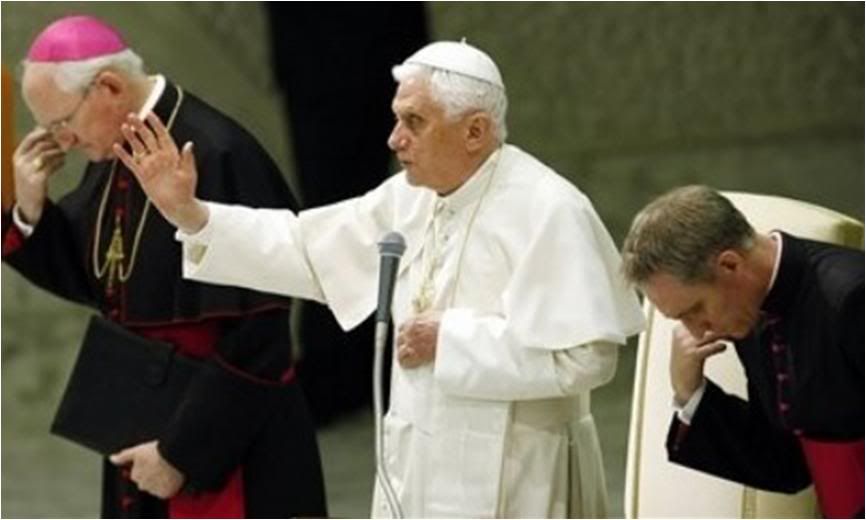
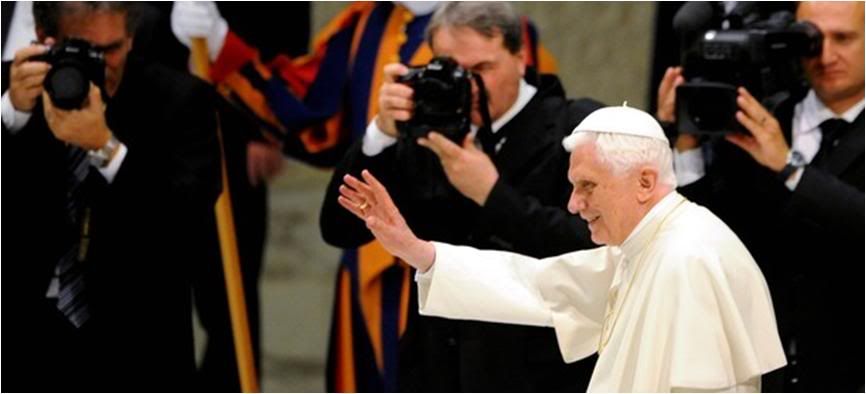
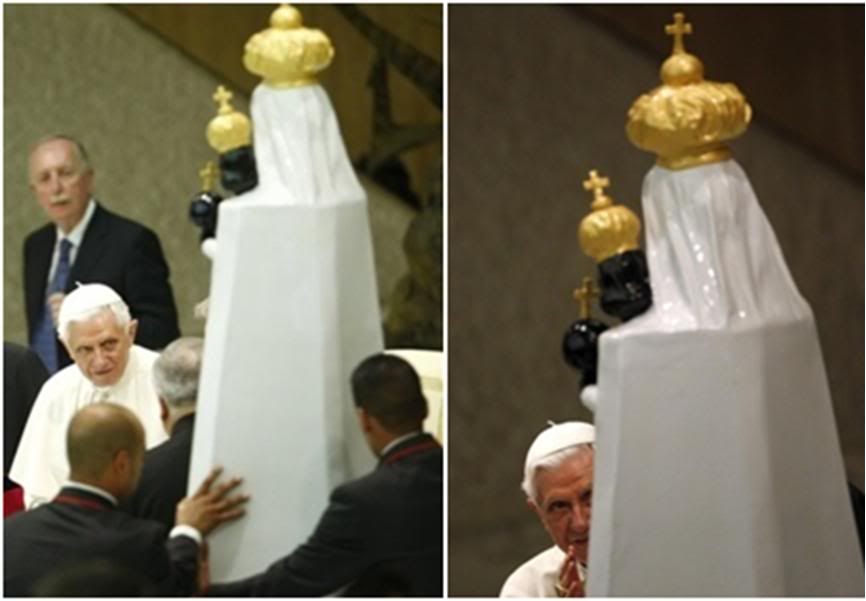
[Modificato da TERESA BENEDETTA 24/06/2010 14:04] |